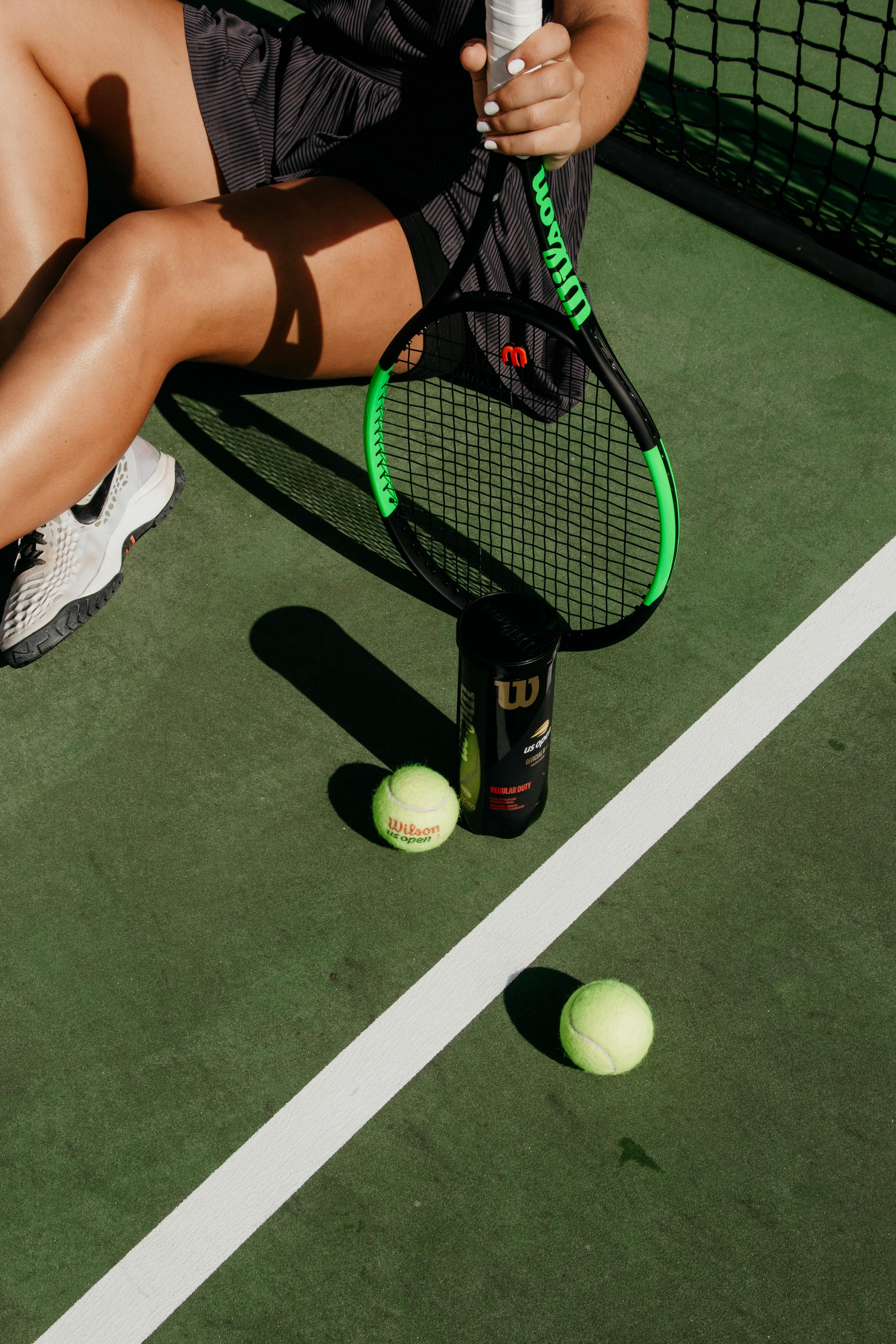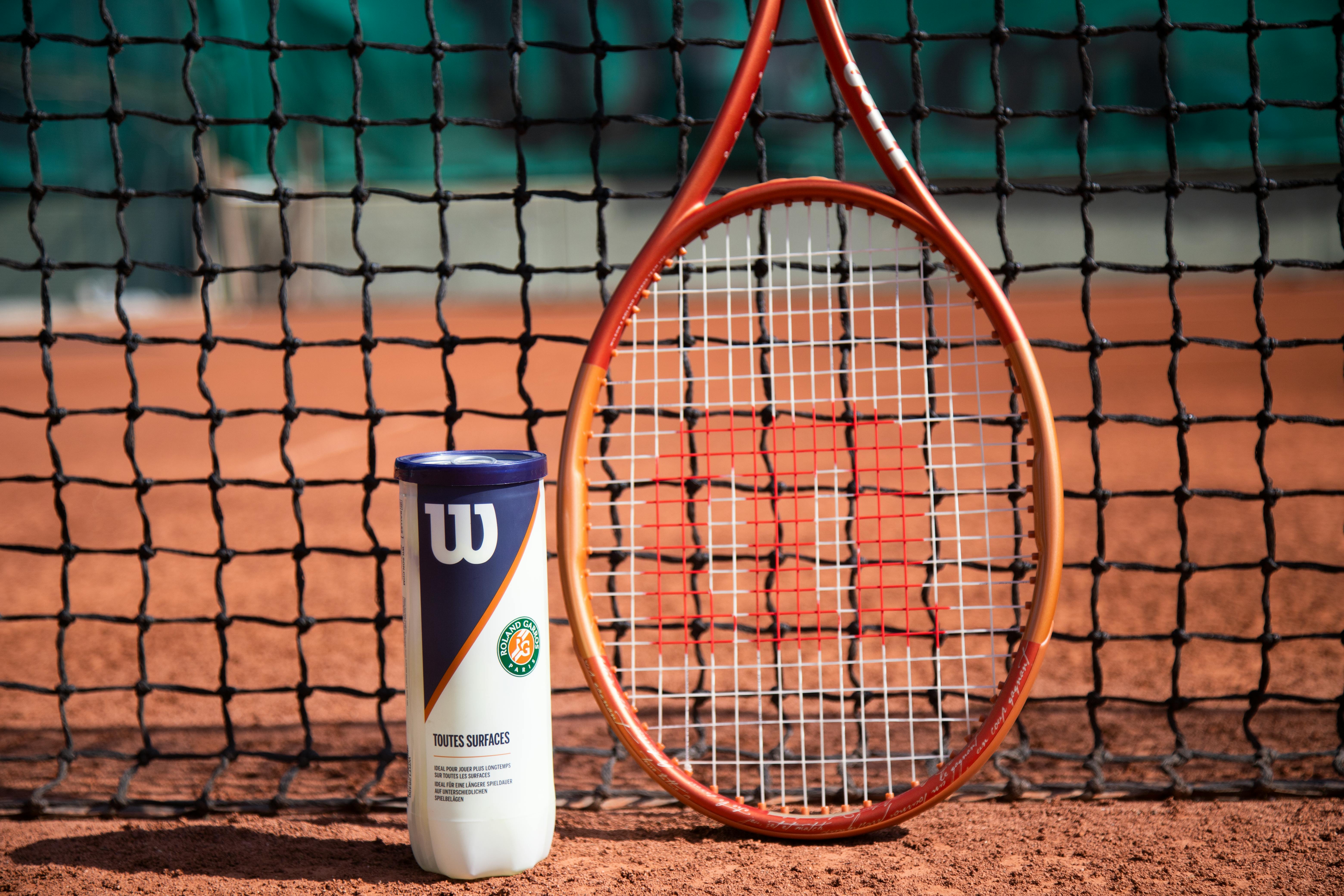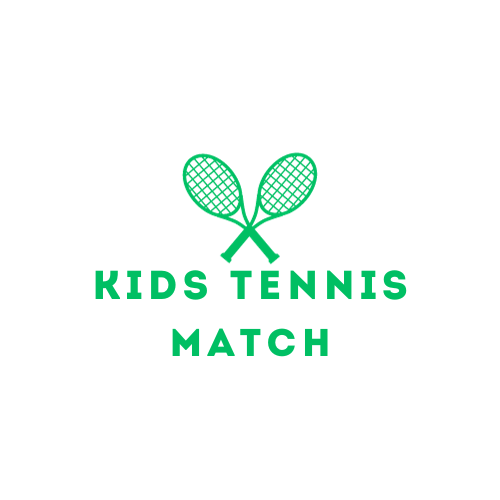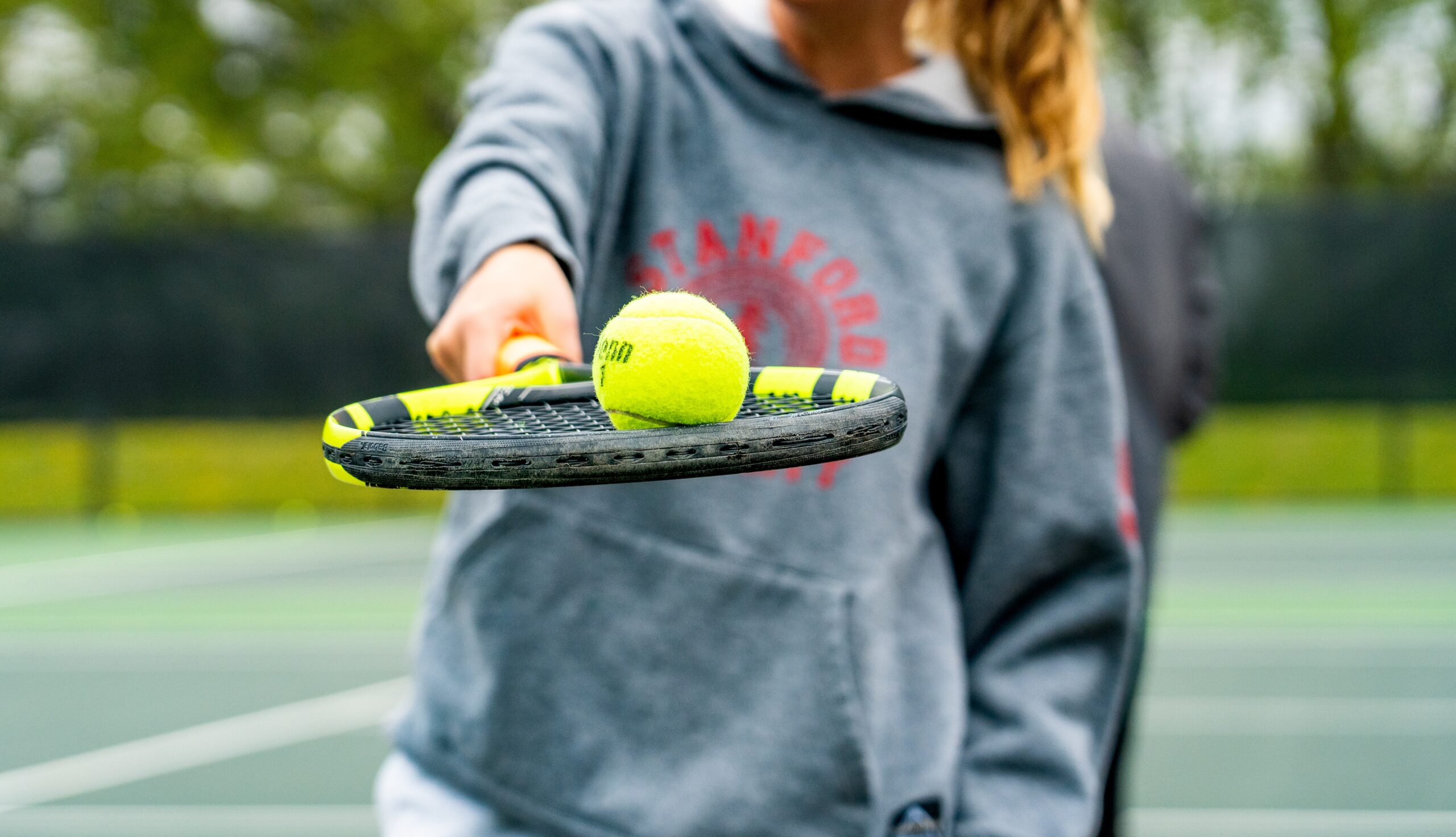So, you want to know about the basic tennis etiquettes that kids should follow? Well, whether your little one is just starting out or already a budding tennis enthusiast, it’s important to instill good sportsmanship and etiquette right from the beginning. From shaking hands with opponents to learning how to call balls in or out, these simple etiquettes not only help create a fair and respectful environment on the court but also teach valuable life lessons that go beyond the game. Let’s take a closer look at some of these essential tennis etiquettes that your child can start practicing today.

Introduction
Welcome to the world of tennis! As a young player, it’s important to not only focus on improving your skills on the court but also to understand and practice proper tennis etiquette. Etiquette plays a crucial role in making the game enjoyable for everyone involved. In this article, we will explore the key aspects of tennis etiquette that you should be mindful of. From dressing appropriately to respecting opponents and officials, these guidelines will help you become a well-rounded and respected player.
Dress Code
Choosing the right attire
When it comes to dressing for tennis, comfort and functionality are key. Opt for lightweight and breathable clothing that allows you to move freely on the court. Avoid wearing denim, as it can restrict your movement. Choosing clothing in light colors can also help you stay cool under the sun.
Wearing appropriate footwear
Proper footwear is essential for both your performance and safety. Invest in a good pair of tennis shoes that provide adequate cushioning and support for your feet. Avoid wearing shoes with black soles, as they can leave marks on the tennis court. Always ensure that your shoelaces are securely tied to prevent accidents while playing.
Using necessary accessories
While it’s important to keep your accessories minimal while playing, certain accessories can enhance your performance and protect you from injuries. Wearing a cap or visor can shield your eyes from the sun and improve visibility. Wristbands or sweatbands can help absorb perspiration and keep your hands dry, giving you a better grip on the racket.
Respect for Opponents
Greeting opponents before and after the match
One of the fundamental aspects of sportsmanship is showing respect to your opponents. Before the match begins, greet your opponent with a handshake or a friendly smile. Similarly, after the match concludes, extend your hand for a handshake and congratulate them on a good game, regardless of the outcome. This gesture shows good sportsmanship and fosters a positive atmosphere.
Maintaining a positive attitude
Maintaining a positive attitude throughout the game is crucial. Refrain from showing frustration or anger, as it can negatively impact both your performance and the overall atmosphere on the court. Instead, focus on your own game and stay supportive and encouraging towards your opponents. Remember, tennis is a sport that values fair play and respect for each other’s efforts.
Avoiding unsportsmanlike behavior
Unsportsmanlike behavior, such as arguing with opponents or making rude comments, has no place in tennis. Treat your opponents with respect, even if they make mistakes or display poor sportsmanship themselves. Stay focused on your own game and avoid engaging in any negative actions that detract from the enjoyment of the sport.
Respect for Officials
Following the umpire’s decisions
Respecting the decisions made by the umpire or referee is crucial. Accept their calls, even if you disagree with them, as they have the final say in the match. Arguing or challenging their decisions can lead to penalties or even disqualification. Remember, officials are there to ensure fair play and maintain order on the court.
Abiding by the code of conduct
Tennis has specific rules and codes of conduct that must be followed. Familiarize yourself with these rules and adhere to them during matches. These guidelines help maintain fairness and integrity in the game. Avoid cheating or engaging in unsporting behavior, as it not only reflects poorly on you but also harms the reputation of the sport.
Using polite language
Using polite language while interacting with officials is essential. Even if you disagree with a call, refrain from using abusive or disrespectful language. Instead, ask for clarification in a polite manner or request a second opinion if necessary. Remember, maintaining a respectful and courteous demeanor towards officials is a reflection of your character as a player.

Court Behavior
Keeping noise levels to a minimum
Maintaining a serene environment on the court contributes to better focus and concentration for you and your opponents. Avoid shouting or making unnecessary noise during play. Refrain from conversing with your coach or spectators while on the court. By keeping noise levels to a minimum, you show respect for the game and create a positive atmosphere for all players.
Waiting for your turn to play
Respecting your opponents’ turn to play is essential. After each point, it’s customary to move to the opposite side of the court, allowing your opponent to serve or return the ball. Avoid engaging in extra movements, such as bouncing the ball excessively or taking too much time between points, which can disrupt the flow of the game.
Not interfering with other players’ matches
If you are playing in a multi-court facility, it’s important to be mindful of other players’ matches. Avoid unnecessary distractions, such as loud conversations or accidentally retrieving balls from adjacent courts. This shows consideration for other players and allows them to concentrate fully on their own games.
Scoring and Announcing
Knowing the scoring system
Understanding the scoring system is crucial for effective communication during a tennis match. Familiarize yourself with the terms “love,” “15,” “30,” and “40” and how they correspond to the points you earn. Additionally, learn the terms “deuce,” “advantage,” and “game” to accurately keep track of the score and communicate it to others.
Announcing the score clearly and audibly
Clear and audible communication of the score is essential, especially during doubles matches or when playing in a crowded environment. After each point, announce the score to your opponent and ensure that they acknowledge it. This helps prevent confusion and ensures that everyone is on the same page throughout the game.
Safety and Fair Play
Keeping the court clean and free of obstacles
Maintaining a clean and hazard-free court is crucial for the safety of all players. Always pick up any balls, water bottles, or other equipment that may obstruct or trip players. Additionally, avoid leaving personal belongings on the court during matches to minimize the risk of accidents or injuries.
Avoiding dangerous shots that may harm others
While tennis is an intense and competitive sport, it’s important to prioritize safety. Avoid hitting shots that can potentially harm your opponents, such as high-speed shots aimed directly at them. Maintain control over your shots and aim for proper placement rather than focusing solely on power. Your opponents’ safety should always be a top priority.
Acknowledging faults
Recognizing and accepting your own faults is an important aspect of sportsmanship. If you hit a ball out of bounds, into the net, or commit a foot fault, acknowledge it immediately. This demonstrates honesty and fair play. Your opponents will appreciate your integrity, and it helps maintain a respectful and transparent atmosphere on the court.
Equipment Care
Taking care of your racket and other equipment
Your racket is the most essential piece of equipment in tennis, and proper care is crucial. Avoid throwing or slamming your racket, as it can damage it and potentially cause injuries to others. After each practice or game, wipe down your racket with a dry cloth and check for any signs of wear or damage. Regularly restring your racket as needed to maintain its performance.
Respecting shared equipment
If you are playing in a shared facility or using equipment provided by a tennis club, it’s important to treat it with respect. Return borrowed balls or rackets promptly after use and make sure they are in good condition. Avoid using excessive force that may damage shared equipment. Showing gratitude and respect for communal resources is essential.
Cleaning up after practice or games
Leaving the court clean and tidy after each practice or game is a sign of respect for the sport and for the facility. Dispose of any trash in the designated bins and ensure that all personal belongings are properly packed away. This not only creates a positive impression but also contributes to a pleasant environment for the next players.

Leaving the Court
Cleaning up personal belongings
As your time on the court comes to an end, take a moment to tidy up your personal belongings. Collect any balls, water bottles, or towels and pack them away. Leaving the court clear of clutter not only shows respect for the facility but also allows the next players to start their game without any hindrance.
Thanking opponents and officials
Expressing gratitude towards your opponents and the officials is an important gesture. Thank your opponents for the match and the opportunity to play against them. Acknowledge the efforts and skills of your opponents, regardless of the outcome. Similarly, thank the officials for their time and ensure they know their contribution to the game is valued.
Exiting the court promptly
Once you have completed your match, it’s important to exit the court promptly. This allows the next players to begin their game on time without any delays. Gather your belongings, bid farewell to your opponents, and leave the court area promptly but gracefully. By doing so, you show consideration for others and help maintain a smooth flow of matches.
Parents’ Role
Teaching and reinforcing proper etiquette
Parents play a vital role in shaping their child’s understanding and practice of tennis etiquette. Teach your child the importance of dressing appropriately, respecting opponents and officials, and exhibiting good sportsmanship. Reinforce these values through regular discussions and by setting a positive example through your own behavior on and off the court.
Encouraging good sportsmanship
Encouraging good sportsmanship is essential for your child’s growth as a tennis player and as an individual. Emphasize the importance of fairness, honesty, and respect in all their interactions on and off the court. Celebrate displays of good sportsmanship and help your child understand the impact it has on their own experiences and the overall tennis community.
Setting a positive example
As a parent, your behavior and attitude greatly influence your child’s understanding of tennis etiquette. It’s important to set a positive example by consistently exhibiting good sportsmanship, respecting opponents and officials, and following all the guidelines outlined in this article. Your actions speak louder than words and can have a lasting impact on your child’s development as a respectful and responsible tennis player.
In conclusion, tennis etiquette is a critical component of the sport that should be practiced by players of all ages. By following the guidelines discussed in this article, you will not only enhance your own experience on the court but also contribute to a positive and respectful environment for all players. Remember, tennis is not just about winning but also about embodying the values of fair play, respect, and good sportsmanship. Embrace these principles, and enjoy the beautiful game of tennis to its fullest extent.


